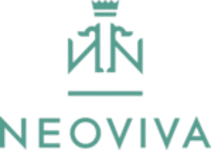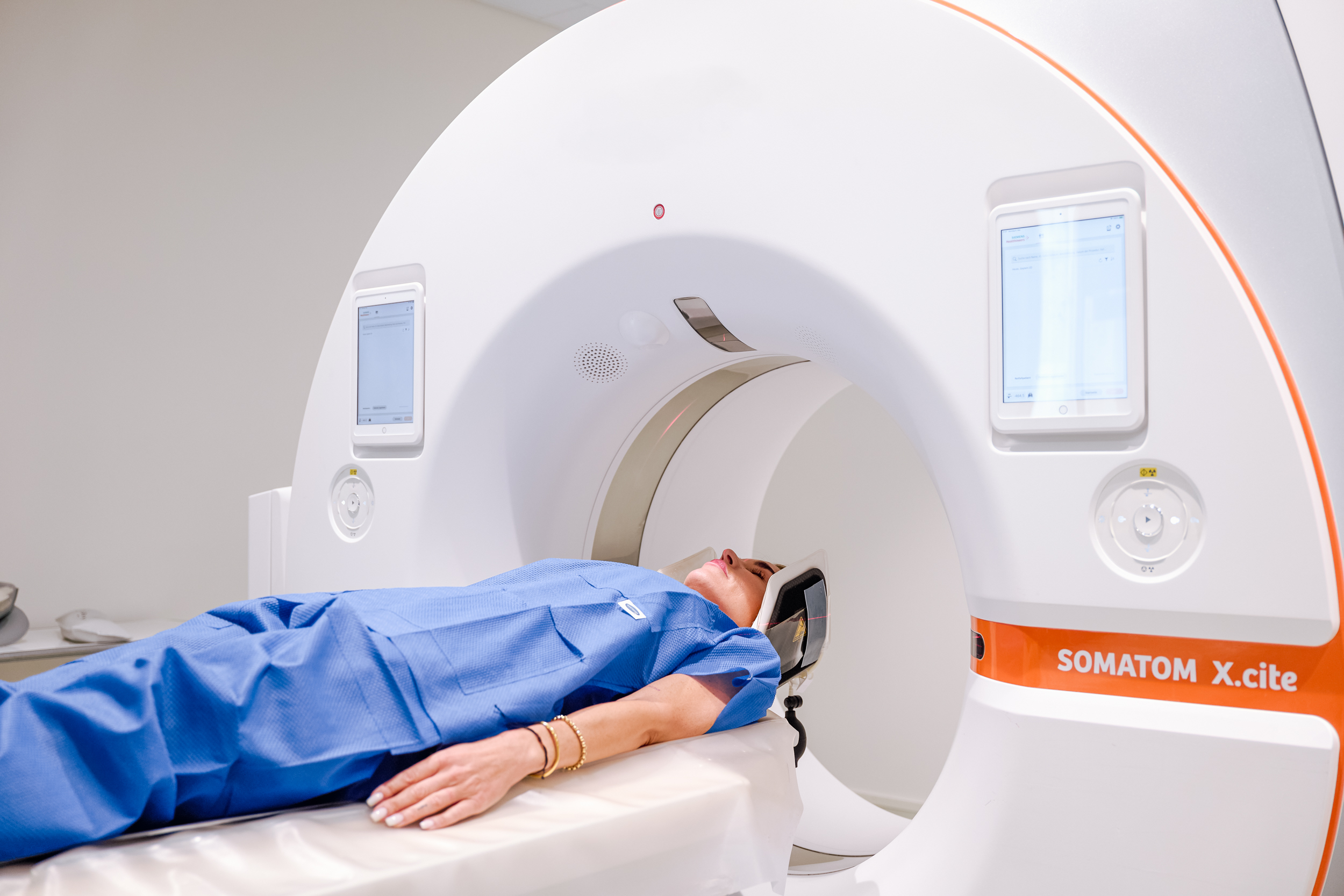Starting addiction treatment can be one of the most daunting decisions a person or a family makes. At NEOVIVA, the journey begins with a comprehensive medical evaluation. This initial step sets the stage for the entire treatment process, prioritising wellbeing, ensuring safety and treatment effectiveness from the outset.
Addiction is never purely about substances or alcohol. It affects both the body and mind and often intertwines with other somatic or mental diagnoses. That’s why NEOVIVA places such emphasis on conducting a detailed assessment and precision medical care before and during treatment.
As Dr. med. Andrei Khomenko, Chief Medical Officer at NEOVIVA, explains:
“Our medical evaluation is very precise. It’s essential for the success of the treatment to diagnose all accompanying somatic or mental disorders and to incorporate them into the treatment plan. This is an important prerequisite since a person cannot focus on treatment if they are physically unwell.”
Why medical evaluation matters in addiction treatment
A common misconception is that detox simply means “getting the drugs or alcohol out of the system.” In reality, safe withdrawal is far more complex and looks different for every individual. Many clients arrive with hidden health issues, such as high blood pressure, depression, or nutritional deficiencies. Any undiagnosed conditions need to be identified and stabilised before treatment can begin.
For clinicians, this isn’t new. But for clients and their families, it is reassuring to know that addiction treatment begins with the same level of medical attention you would expect in any hospital for any other disease. Blood tests, scans, and clinical assessments give doctors the complete picture of a patient’s health, while ongoing careful monitoring ensures that no detail is missed.
According to Dr. med. Andrea Dzaja, NEOVIVA’s Medical Director:
“It’s about responding to the unique needs of a client. This particular situation cannot only be subordinated to a specific pattern. A different history of consumption precedes every withdrawal, and the reactions of the body and mind for each person are very individual.
“The treatment plan is therefore developed with consideration of the symptoms and the client’s personality. Our observations are shared openly with the client so we can jointly decide on the best approach to meet the individual’s needs as they begin their journey into an independent life.”
The first step: Partner hospital assessment
Upon arrival in Switzerland, clients are first taken to NEOVIVA’s partner hospital. Here, they undergo a comprehensive medical assessment, including blood analysis, ECG, physical examination, and MRI scans of the brain to rule out underlying conditions.
Depending on their condition, clients may receive further testing and remain in the hospital for a few hours or for a few days. During this time, withdrawal symptoms are carefully managed. Doctors and recovery counsellors from NEOVIVA accompany clients at this stage.
Dr. Dzaja explains the importance of this phase:
“I prefer that the vital parameters are stable upon transfer to us, even though we are very well-equipped to handle emergencies at NEOVIVA. However, in most cases, stable vital parameters also mean that the patient is mentally ready for the psychotherapy content, which represents an essential part of the treatment. Witnessing this moment, in which the client opens up to profound change processes, is a gift for us. Of course, supportive medications are also used during this phase. We pay close attention to ensuring both safety and the fastest possible transfer.”
While our medical evaluations are comprehensive, we avoid unnecessary testing. At NEOVIVA, diagnostics follow a Swiss approach: evidence-based, clinically justified, and ensuring clear clinical value.
Managing medications with precision
One of the most frequent challenges is medication management. Many clients arrive with complex prescriptions, sometimes from multiple doctors, and addictive substances still in use.
“It’s not uncommon for people to tell us in their pre-admission consultation that they’re not on any meds, only to arrive with a bag of ten or more different prescriptions,” says Dr. Khomenko.
Sorting through these medications is critical. Some need to be continued, some require the dosage to be adjusted, and any medications with addictive potential must be replaced.
Dr. Khomenko emphasises:
“Precision medicine is extremely important in addiction treatment. A client must be able to function and engage in psychotherapy and group work. If they can’t do this because they are over-medicated, then treatment is failing them.”
Another essential consideration is pain. Sometimes substance abuse begins with pain medication. It’s necessary to determine what came first and how it evolved. Quite a few clients arrive in real physical pain because they have previously used substances to find relief. During withdrawal, when the substances are removed, their pain returns. If the pain becomes overwhelming, clients can retreat into their rooms and disengage from the therapeutic process. With pain, there is also the challenge of deciphering what is associated with a somatic condition and what may be amplified by withdrawal or psychological distress.
The goal is always to reach a point of equilibrium where clients are supported by the right medications and receive enough to manage withdrawal and co-occurring conditions, but never so much that it interferes with their ability to engage in the recovery process. For pain, the goal is always to discover its true source and treat the cause.
Addressing co-occurring affective disorders
Many people entering treatment aren’t just battling addiction; they may also be struggling with depression, anxiety, or other affective disorders. Left untreated, these conditions can make recovery much harder or even derail it altogether. A person who is trapped in a low mood, has low self-esteem or is suffering from exhaustion may not have the emotional strength to engage fully in the therapy.
This is where the medical evaluation is vital. By carefully assessing mental health alongside physical health, NEOVIVA’s doctors can prescribe medications that support stability and recovery.
Dr. Dzaja explains:
“If necessary, we prescribe antidepressants, usually for about six months. The medications we use are non-addictive and can be invaluable during this part of treatment, enabling clients to implement therapy content, gain a new perspective, and learn self-care. All of this becomes virtually impossible when the client is suffering from depressive symptoms.
“The objective is not to treat patients permanently with medication, but rather to provide them with the stability to initiate the actual therapeutic work. Once they have developed resilience and healthier coping skills, the antidepressants can be discontinued.”
By addressing comorbidities early, NEOVIVA ensures that clients are emotionally secure and ready for treatment—a crucial step toward lasting recovery.
From soft withdrawal to true treatment
For clients, withdrawal can feel like the most challenging part of the journey, both physically and psychologically. Anxiety, fear and cravings can feel overwhelming. NEOVIVA’s approach is to make withdrawal as safe and supported as possible while encouraging clients to experience what it feels like to move beyond the substances.
“It’s about creating a gentle withdrawal process, where clients gradually taper off with the guidance of our highly skilled recovery counsellors. Instead of relying on pills, they are introduced to powerful, practical tools that help them realise they no longer need the substance. Along the way, they learn effective self-help strategies they can use on their own, especially in the future when they return home,” says Dr. Dzaja. “That’s what true independence is all about.”
At NEOVIVA, medical doctors, psychotherapists, and recovery counsellors work in tandem. Doctors oversee medications and clinical safety, while psychotherapists and recovery counsellors help clients develop the psychological tools to face emotions and cravings without substances. This constant collaboration ensures treatment is seamless and comprehensive.
“The team has clinical meetings two times every day, and often even more,” explains Dr. Dzaja. “We make sure we are always on the same page about how far to challenge a client or when to step back. From the outset, the results of the full medical evaluation are shared with the team, so we all have the full picture.”
The common risks and how NEOVIVA minimises them
Even with the most careful preparation and support, withdrawal carries risks; relapse, unexpected medical complications, or psychological distress can occur. Clients may find it difficult to accept guidance, which can add emotional turbulence and make the tapering of drugs, like benzodiazepines, more challenging.
However, NEOVIVA’s structure, which includes frequent monitoring, clear boundaries, and consistent support, significantly reduces these risks. Clients are not only stabilised medically but also educated about what is happening in their bodies and why.
This transparency builds trust. As Dr. Khomenko notes, education is part of the continual assessment process:
“Explaining to clients what we are doing and why is essential. It helps them understand the journey and later see how far they have come.”
Beyond detox: building a foundation for recovery
At NEOVIVA, withdrawal is just the beginning. The medical assessment not only serves to diagnose and treat disorders but also lays the foundation for intensive and holistic psychotherapeutic work, where clients start to connect with a free, balanced, and independent self. This process involves identifying root causes, addressing traumas, and modifying dysfunctional thought patterns to facilitate a profound personal transformation.
“My job is to prepare clients for the process. Then the real transformation can begin.” says Dr. Dzaja.
NEOVIVA ensures that patients enter treatment with stability, clarity, and confidence by balancing medical safety with the profound, holistic therapeutic process.
Looking ahead: improving the medical evaluation
Medical science is constantly evolving, and NEOVIVA is open to innovations and new approaches. Epigenetics, for example, is a promising area of addiction research, although it is not yet mature enough for everyday treatment. NEOVIVA’s medical focus remains on evidence-based care, rigorous evaluation, and precision medicine.
Conclusion
At NEOVIVA, medical evaluation is the cornerstone of care and the safeguard that makes the journey to independence possible. By thoroughly assessing each client’s physical and psychological health, adjusting medications with precision, and working hand in hand with psychotherapists and recovery counsellors, NEOVIVA creates a treatment environment where healing can truly happen.
For clients, this means safety and trust. For doctors and clinicians who refer patients, it means confidence that every aspect of a patient’s health is addressed. And for families, it means reassurance that their loved ones are in the best possible hands.




0 Comments